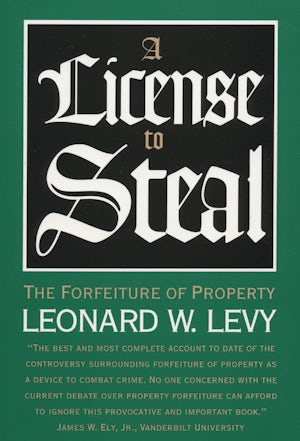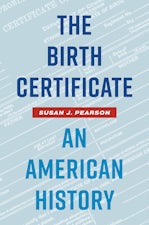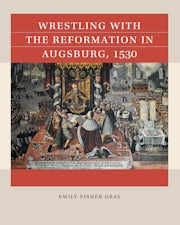A License to Steal
The Forfeiture of Property
By Leonard W. Levy
288 pp., 6.125 x 9.25
-
Paperback ISBN: 978-1-4696-1379-6
Published: January 2014 -
E-book EPUB ISBN: 978-1-4696-2018-3
Published: March 2014 -
E-book PDF ISBN: 979-8-8908-7760-4
Published: March 2014
Buy this Book
- Paperback $37.50
- E-Book $19.99
For Professors:
Free E-Exam Copies
About the Author
Leonard W. Levy was Andrew W. Mellon All-Claremont Professor Emeritus of Humanities at the Claremont Graduate School and author of The Establishment Clause: Religion and the First Amendment and the Pulitzer Prize-winning Origins of the Fifth Amendment.
For more information about Leonard W. Levy, visit
the
Author
Page.
Reviews
"The best single source about the forfeiture question, from the history of the notion in English and American law, to the recent statutory develpments, and to the gross abuses by government."--Stephen M. Krason, Journal of Catholic Legal Studies
"Leonard Levy, the legal historian who has written a number of highly regarded historical studies on various provisions of the United State Constitution, has added to his impressive oeuvre a new study of civil and criminal forfeiture. . . . The book provides a concise and entertaining summary of the historical origins of modern civil and criminal forfeiture in early English law."--Michigan Law Review
"A valuable work on an important subject."--Appellate Practice Journal
"A tour de force of lively writing and keen historical interpretation. . . . This work is both an essential casebook and an outspoken, feisty, important study of the struggle for intellectual and religious liberties."--Publishers Weekly
"Levy has made another important contribution to legal history. This cogent, carefully researched, and well-argued study . . . places historians and the public generally in his debt."--American Historical Review




